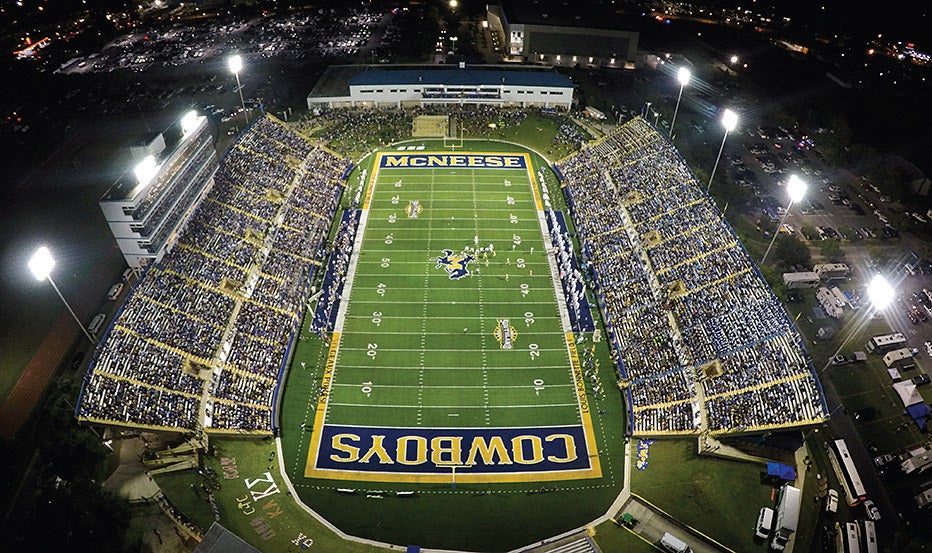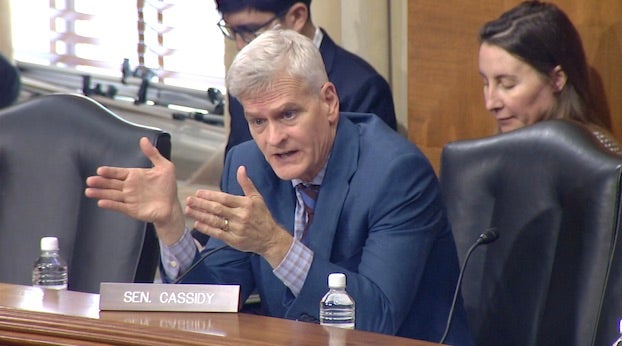Final alcohol tax rise lower than proposed hike
Published 6:47 am Sunday, March 13, 2016
<span style="font-weight: bold; font-family: ‘Lucida Sans’;" class="R~sep~ACopyBody">I would like to know how much they are going to raise the alcohol tax, because they don’t say anything about that.</span>
<span class="R~sep~ACopyBody">The alcohol tax proposal — House Bill 27, by Rep. Kenny Cox, D-Natchitoches — would increase excise taxes on alcoholic beverages by the following amounts:</span>
<span class="R~sep~ACopyListing">Liquor — From 66 cents per liter to 80 cents.</span>
Trending
<span class="R~sep~ACopyListing">Sparkling wine — From 42 cents per liter to 55 cents.</span>
<span class="R~sep~ACopyListing">Still wine — From 3 cents per liter to 20 cents if it has an alcohol content of up to 14 percent; from 6 cents per liter to 35 cents if it has an alcohol content of more than 14 percent; from 42 cents per liter to 55 cents if it has an alcohol content of more than 24 percent.</span>
<span class="R~sep~ACopyListing">Beer — From $10 to $12.50 per 31-gallon barrel.</span>
<span class="R~sep~ACopyBody">The measure, sent to the governor, would bring in about $4.7 million — $2.7 million from liquor and wine, $2 million from beer — through the rest of the current fiscal year and about $19 million a year afterward. The new taxes would take effect April 1.</span>
<span class="R~sep~ACopyBody">The tax increases in the original bill were larger, but Senate amendments reduced the amounts. The original proposal would have generated about $9 million through the rest of this fiscal year and $28 million a year after that.</span>
<span class="R~sep~ACopyBody">As The Informer has noted before, the state last raised its excise taxes on beer in 1948, on liquor in 1970 and on wines in 1956. The state changed the reckoning of the liquor and wine taxes in 1978, switching from gallons to liters, but left the taxes the same.</span>
Trending
<span class="R~sep~AHeadBrief">Term refers to stocks, similar documents</span>
<span style="font-weight: bold; font-family: ‘Lucida Sans’;" class="R~sep~ACopyBody">Can you explain what “monetary instrument abuse” means? I see it a lot in the paper under arrests.</span>
<span class="R~sep~ACopyBody">Under Louisiana R.S. 14:72.2, monetary instrument abuse refers to the forging or counterfeiting of certain kinds of checks, financial certificates, receipts and similar documents.</span>
<span class="R~sep~ACopyBody">The following are considered “monetary instruments” under the statute:</span>
<span class="R~sep~ACopyListing">“A note, stock certificate, treasury stock certificate, bond, treasury bond, debenture, certificate of deposit, interest coupon, warrant, debit or credit instrument, access device or means of electronic fund transfer, United States currency, money order, bank check, teller’s check, cashier’s check, traveler’s check, letter of credit, warehouse receipt, negotiable bill of lading, certificate of interest in or participation in any profit-sharing agreement, collateral-trust certificate, pre-organization certificate of subscription, transferable share, investment contract, voting trust certificate, or certificate of interest in tangible or intangible property.”</span>
<span class="R~sep~ACopyListing">“An instrument evidencing ownership of goods, wares, or merchandise.”</span>
<span class="R~sep~ACopyListing">“Any other written instrument commonly known as a security.”</span>
<span class="R~sep~ACopyListing">“A certificate of interest in, certificate of participation in, certificate for, receipt for, or warrant or option or other right to subscribe to or purchase, any of the foregoing.”</span>
<span class="R~sep~ACopyListing">“A blank form of any of the foregoing.”</span>
<span class="R~sep~AZaphdingbatdot7pt">l</span>
<span style="font-weight: bold;" class="R~sep~ACopyEditors~sep~endnote">Online:</span> <span class="R~sep~ACopyEditors~sep~endnote">www.legis.la.gov.</span>
<span class="R~sep~AZaphdingbatdot7pt">l</span>
<span style="font-size: 8pt;" class="R~sep~ACopyEditors~sep~endnote">The I</span><span style="font-size: 8pt;" class="R~sep~ACopyEditors~sep~endnote">nform</span><span style="font-size: 8pt;" class="R~sep~ACopyEditors~sep~endnote">er answers questions from rea</span><span style="font-size: 8pt;" class="R~sep~ACopyEditors~sep~endnote">ders each Sunday, Monday a</span><span style="font-size: 8pt;" class="R~sep~ACopyEditors~sep~endnote">nd Wednesday. It is re</span><span style="font-size: 8pt;" class="R~sep~ACopyEditors~sep~endnote">searched and written by</span> <span style="font-weight: bold; font-size: 8pt;" class="R~sep~ACopyEditors~sep~endnote">Andrew Perzo</span><span style="font-size: 8pt;" class="R~sep~ACopyEditors~sep~endnote">, an</span> <span style="font-style: italic; font-size: 8pt;" class="R~sep~ACopyEditors~sep~endnote">American Press</span> <span style="font-size: 8pt;" class="R~sep~ACopyEditors~sep~endnote">staff wri</span><span style="font-size: 8pt;" class="R~sep~ACopyEditors~sep~endnote">ter. To ask a question, call</span> <span style="font-size: 8pt;" class="R~sep~ACopyEditors~sep~endnote">494-409</span><span style="font-size: 8pt;" class="R~sep~ACopyEditors~sep~endnote">8 and leave voice mail, or ema</span><span style="font-size: 8pt;" class="R~sep~ACopyEditors~sep~endnote">il informer@americanpress.com.</span>





